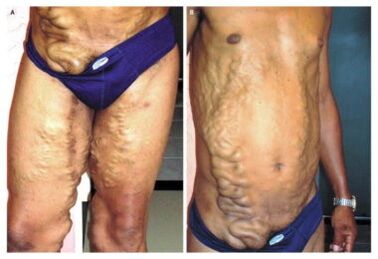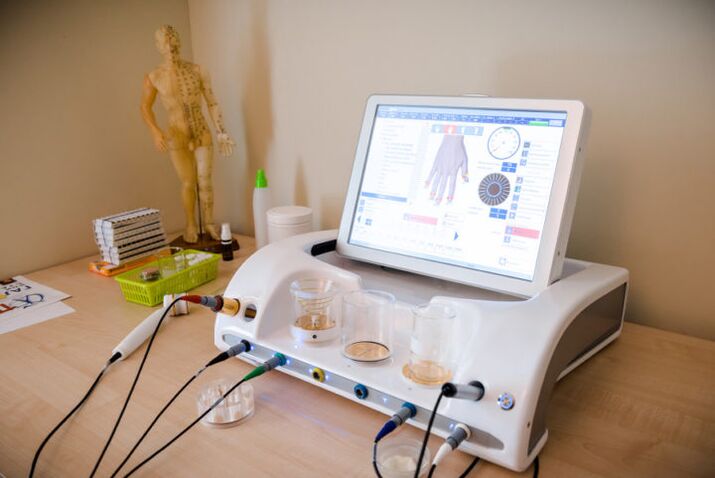
The question of how to identify parasites in the human body worries many, as these are organisms that lead a parasitic lifestyle, their development cycle implies permanent or temporary existence in the human body. This can happen according to certain symptoms. Although different parasites manifest themselves in different ways, there are some common symptoms that can make one think that there are not very pleasant roommates. Secondly, it is possible to determine the presence of parasites in the body with the help of special diagnostics. Timely diagnosis allows you to prevent serious consequences and avoid diseases that occur as a result of the negative impact of worms.
Signs of parasites in the body
How to find out if there are parasites in the body? You need to listen carefully to your body and the processes that take place in it. In the initial stages of parasitic infestations, the symptoms may not be bright enough, but a person who is careful about his health will notice pathological phenomena and will be careful:
- Allergic reactions. One of the signs of a parasitic attack on the human body is an allergy. In response to the adverse effects of parasites, the human body begins to produce more eosinophils - protective cells. They can cause allergic reactions. In turn, the parasites release immunoglobulin E into the blood of their host, which contributes to increased allergies. The most powerful of the parasites is the allergen against roundworms, it causes reactions on the body (skin rash), in the digestive tract, in the lungs and in the conjunctiva.
- Discomfort in the gastrointestinal tract. The parasites, which are localized in the small intestine, provoke an inflammatory process in it, as a result of which the normal functioning of the intestine is disturbed. Nutrients are less well absorbed, undigested fat enters the rectum, while a person has spasms, and diarrhea alternates with constipation. In addition, the patient experiences epigastric pain, left or right hypochondrium, nausea, and heartburn. Appetite disappears, body weight decreases. In case of disorders of the biliary organs and digestive tract, acne, pigmentation may appear on the skin, the skin becomes dry and sagging, the complexion is dull.
- Some worms, due to their size or number, are able to block the bile ducts, as a result of which the commonbile duct becomes blocked, bile flow worsens or stops in humans this manifests itself in obstructivejaundice. Because toxic substances are mainly excreted through the skin, problems with the gallbladder or liver affect the condition of the skin. There are age spots, acne, the complexion becomes yellowish.
- Stool disordersmanifest as diarrhea and constipation. Constipation occurs when the intestinal lumen is blocked by parasites. As for diarrhea, it is provoked by prostaglandin-like substances that cause a lack of chloride and sodium in the body.
- Due to prolonged diarrhea, the body loses water, which leads todysbiosis.
- Parasites severely deplete the immune system, immunoglobulin A is produced in smaller amounts and the body becomes vulnerable to viral and infectious diseases.
- Due to the fact that parasites migrate through the body, they can settle anywhere, including muscle and joint fluid. As a result of their intervention in the muscles and joints, inflammatory processes occur that cause pain. Therefore, a person hasjoint pain and muscle pain. Due to digestive disorders and the absorption of nutrients by worms, a person suffers from a lack of nutrition and a decrease in blood sugar levels, as a result of which body weight decreases. Pathogens absorb minerals and trace elements needed by humans, and thereforedevelops anemia and premature aging.
- Anxiety and nervous conditions provoke toxic waste products from parasites, they affect the nervous system and cause various disorders.Insomniaoccurs in humans due to the fact that at night the body tries to get rid of harmful organisms.
- In some cases, a large accumulation of helminth infestations canprovoke oncological processesin the body of the host, especially a high risk occurs when the parasites are localized in a particular organ - lungs, liver, pancreas, andsuch as.

The attentive person will certainly notice the described symptoms. He should be checked for parasites himself or go to a doctor so he can send it for diagnosis.
Diagnostic measures
The presence of parasites in the human body can be determined using several diagnostic procedures that not only detect the presence of parasites with great accuracy, but also determine their type, quantity, location and damage they have caused to human health. .
Until recently, the presence of parasites was determined only on the basis of stool analysis. Despite the fact that this is the simplest method of research, its accuracy is not very high. The fact is that parasites do not lay their eggs every day and it is impossible to predict exactly when this will happen. Therefore, for an accurate diagnosis, you should donate stool 10 times in a month. Not very convenient for working and studying people. But now there are more advanced diagnostic methods:
The fact is that parasites do not lay their eggs every day and it is impossible to predict exactly when this will happen. Therefore, for an accurate diagnosis, you should donate stool 10 times in a month. Not very convenient for working and studying people. But now there are more advanced diagnostic methods:
- X-rays, endoscopy and endobiopsydetect parasites in the internal organs (lungs, bile, liver, etc. ).
- PCR (polymerase chain reaction). Using samples taken in the form of a sample of saliva, secretions or blood, the DNA of the parasite is determined. If a blood test shows the presence of parasites, then a PCR test can determine if the parasites are of one type or another.
- ELISA (enzyme-linked immunosorbent assay). It detects antigens and immunoglobulins. The accuracy of such a diagnosis is 90% and the type of parasites, their number and general dynamics are monitored.
- Bioresonance diagnostics. The patient's body is affected by electromagnetic oscillations, while only the presence of pathogens can be checked, but it is impossible to determine their type.
Conclusion and conclusions
If you suspect that you have parasites, or just want to be tested for this result, you should consult a doctor - parasitologist or infectious disease specialist, he will tell you how to be tested and if the results are positive, prescribe the correcttreatment. Self-medication is highly discouraged. First, antiparasitic drugs have a large number of contraindications because they are very toxic. Therefore, they can only be taken with a prescription. Only a doctor can choose the right dose to destroy the parasites and cause as little damage as possible to the human body.
Second, some parasites must be removed from the body under the supervision of a doctor. When the drug acts on the parasite, it dies, but before that it releases toxins into the blood of its host, which can cause anaphylactic shock in humans.
Third, it is ineffective to use traditional parasite medicine. They act only as a preventive measure or in the case when the infection has just occurred and the larva has not yet become an adult, in all other cases it is pointless to treat yourself with pumpkin seeds, green walnuts, wormwood and soon.
























